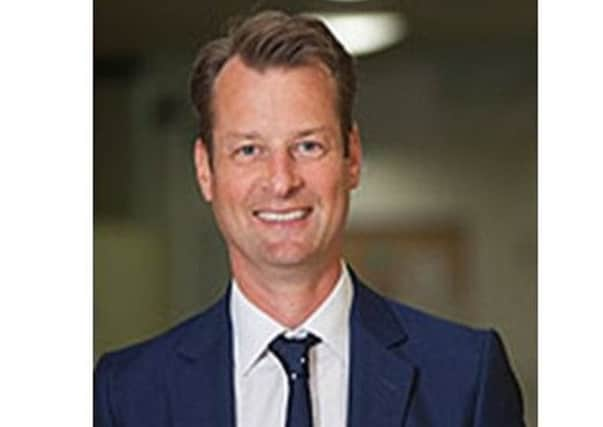Clinical trial at Beatson in Glasgow gives hope to ‘incurable’ cancer patients


The Beatson West of Scotland Cancer Centre (BWOSCC) has been part of a clinical trial which has shown that an aggressive form of high precision radiation therapy can greatly increase the lives of patients diagnosed with metastatic tumours (oligometastic).
Generally, when a patient has a cancer that has spread to other parts of the body, called metastatic cancer, they are considered incurable.
Advertisement
Hide AdAdvertisement
Hide AdBut, in the first randomised trial of its kind, researchers at a number of cancer centres across the world have shown that an aggressive form of high-precision radiation therapy can double how long a patient can live without cancer.
Dr Stephen Harrow, Ph.D a National Research Scotland Fellow at the Beatson West of Scotland Cancer Centre and co-author on the study, said: “We are very excited about these results and I truly believe it could be a game-changer for many.
“Traditionally when a cancer has spread to other organs other than the original site of the disease patients were considered incurable.
“However there is a theory called the oligometastatic theory – that if a patient only has a few spots of cancer returning, those spots could be killed with radiation or with surgery to improve their survival. But this has never been shown in a randomized trial before now.”
Advertisement
Hide AdAdvertisement
Hide AdThis multi-centre trial studied patients with a variety of cancers that had been previously treated but then returned in a limited number of other parts of the body.
The patients were treated with stereotactic ablative radiotherapy (SABR), also known as stereotactic body radiation therapy (SBRT), which is a form of high-precision cancer therapy that delivers substantially higher doses of radiation to the tumour site in just one or a few treatment sessions.
A totasl of 99 patients from Scotland, Canada, the Netherlands and Australia were enrolled as part of the trial. Each patient had been treated for cancer but the cancer had returned, with tumours appearing in as many as five different places. All patients had good performance status and a life expectancy of more than six months.
The study was developed by Dr David Palma a clinician-scientist at the Ontario Institute for Cancer Research which provided funding for this study, which was recently published in the Lancet.
Advertisement
Hide AdAdvertisement
Hide AdAs a result of collaboration between Dr Harrow and Dr Palma, BWOSCC was the only UK site to open the study, enabling access to this treatment for Scottish patients.
Dr Harrow added: “It has been a great opportunity for Scottish patients to take part in this ground breaking clinical trial and now we’ve been able to show that if, indeed, a patient’s cancer has spread to only a few spots, those tumours can be targeted with high-dose radiation which has been shown to increase survival by a median of 13 months.”
One patient who has benefitted from the trial is Albert Anderson (83). Seven years ago he had a cancerous lesion in his windpipe, which was followed three years later with two small tumours in his lung.
Albert said: “Thanks to the trial, my cancer has been completely eradicated. My treatment has been excellent, just excellent.
Advertisement
Hide AdAdvertisement
Hide Ad“I am still attending Dr Harrow’s clinic firstly every three months and then every six. They now only need to see me back once a year which is good and I feel fine.
“I hope the treatment this trial brings become normal for everyone and brings hope to those with secondary cancers.”